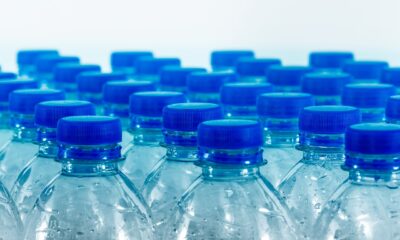Politics
GOP bill would create water pollution credit clearinghouse

MADISON, Wis. (AP) — Republican legislators began a push Tuesday to streamline Wisconsin’s water pollution credit-trading system, introducing a bill that would create a clearinghouse that they say would make it easier for large-scale facilities and farmers to trade with one another.
The bill’s authors, Sen. Rob Cowles, Sen. Jerry Petrowski and Rep. Joel Kitchens, say the measure could energize the credit-trading marketplace, saving taxpayers the cost of upgrading public facilities to meet new phosphorus standards and providing farmers with a new revenue source.
The lawmakers claim in a memo seeking co-sponsors: “Third-party trading could save some communities from passing multi-million dollar wastewater treatment plant upgrade costs onto residents for little water quality improvement, keep small manufacturers and food producers open and operating, and, perhaps, best of all, help to save some of our cherished farmers from hanging a ‘closed for business’ sign on the barn.”
Wisconsin law currently divides polluters into two classes: so-called point sources, such as municipal sewage treatment plants that discharge pollutants directly into the environment, and nonpoint sources, such as farms that pollute through run-off. Point sources can exceed pollution limits for certain non-toxic pollutants in their state permits if they buy credits from non-point sources that have taken steps to reduce their non-toxic pollutants.
The stakes have grown higher for point sources since the Department of Natural Resources imposed tougher phosphorus restrictions on them in 2010. The state Department of Administration estimates that businesses and municipalities would have to spend at least $3.45 billion to comply. The DNR won variances from the U.S. Environmental Protection Agency giving qualifying point sources 20 years to comply, but the clock is ticking.
The credit-trading option was created in the 1997-99 state budget but hasn’t caught on. As of Monday, the DNR had approved 15 trades with another 11 pending. Point sources and non-point sources simply lack the relationships to set up contracts. What’s more, if non-point sources don’t follow through on their pollution reduction efforts, it could put point sources into noncompliance with pollution limits in their permits. Point sources such as sewage plants or cheese factories don’t have the manpower to verify the non-pointers’ reduction work.
Under the bill, state officials would hire a private entity to act as a credit clearinghouse. The clearinghouse would contract with non-point polluters and pay them to undertake pollution reduction work that generates credits. Point sources could purchase the credits from the clearinghouse rather than deal directly with the non-pointers. Trades would have to occur within the same area as defined by the DNR.
The bill’s authors said in their memo that the measure could jump-start the credit marketplace, leading to better water quality.
The measure assuages point sources’ concerns about being liable if non-point sources didn’t really do the work to earn credits and help struggling farmers raise money by selling credits, in turn allowing them to buy pollution reduction technology. Point sources, meanwhile, could avoid spending on upgrading pollution controls, perhaps allowing small manufacturers to stay in business and saving taxpayers money on upgrades for public facilities, the lawmakers said.
The Dairy Business Association issued a news release Tuesday calling the clearinghouse an “appealing option.” Curt Witynski, deputy executive director of the League of Wisconsin Municipalities, called the bill “intriguing” in a telephone interview.
The proposal was also welcomed by Amber Meyer Smith, a lobbyist for environmental group Clean Wisconsin, who issued a statement calling it “a step in the right direction toward a clean water future.” But Jennifer Giegerich, a lobbyist for Wisconsin Conservation Voters, was more guarded in an email to The Associated Press, saying trading credits alone isn’t the answer and the state needs tougher water quality standards.
The bill’s fate is uncertain. Alec Zimmerman, a spokesman for Senate Majority Leader Scott Fitzgerald, had no immediate comment. Assembly Speaker Robin Vos’ spokeswoman, Kit Beyer, and Gov. Tony Evers’ spokeswoman, Melissa Baldauff, didn’t respond to emails seeking comment on the bill.
Evers has declared 2019 the year of clean drinking water in Wisconsin but tensions are flaring between him, Vos and Fitzgerald as they prepare to begin negotiations on the upcoming state budget.
Follow Todd Richmond on Twitter: https://twitter.com/trichmond1







